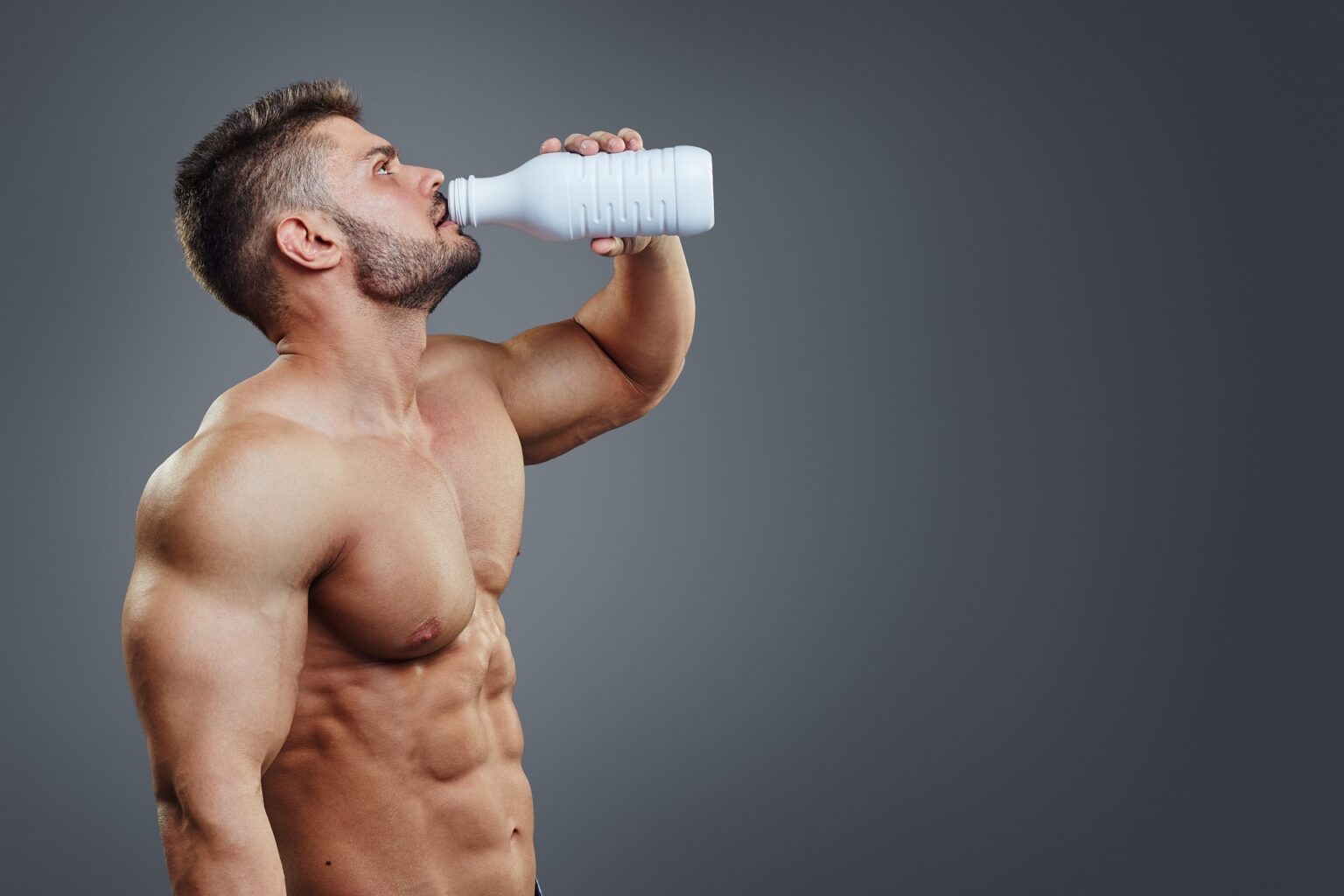Q: What do you guys think about drinking milk? I know a lot of people who get bloated from it and still others who say it will make you fat. Should I drink milk if I want to be big AND lean?
A: Some people are lactose intolerant. These people will have an unpleasant gastro-intestinal reaction to the consumption of milk (stomach cramps, bloating, and diarrhea). Lactose intolerance is caused by lack of a digestive protein called lactase, which is critical for the breakdown of milk sugar (lactose). For those who have a lactose intolerance, a lactose free alternative to milk is advisable. For everyone else, though, milk is a key food in the bodybuilding arsenal. In the pre-drug days of our sport, milk was toted as a muscle-building wonder food. Lately, it’s been relegated to the sidelines for less than satisfactory reasons. It’s about time that this amazing liquid regained center stage. Consider these milk facts:
A liter of milk (that’s four standard glasses) contains 32 grams of protein, in the form of whey and casein. Whey protein is the most bio-available protein that there is. In addition, it provides all the amino acids that are needed to support muscle growth in the exact proportions that the body needs. Casein acts more slowly than whey, which is not a bad thing. It actually slows down the actions of whey, allowing it to stay active in the body for a longer time period. This means that it is more likely to be stored in muscle tissue.
The mineral content of milk is another factor in its favor. The main mineral contained in milk is calcium. Now, you’ve no doubt heard people touting the benefits of calcium in promoting strong bones and white teeth. Strong bones are very important for a hard training weight lifter. If you’re over the age of 35, then this becomes even more important as our bones start to deteriorate after that age. Did you know that calcium also promotes fat loss? That’s right – it has a metabolizing effect and more efficient macro-nutrient uptake in the blood. Calcium is also responsible for the manufacture of certain hormones and enzymes that control the digestive system and the utilization of energy from fats. Increased calcium uptake also lowers the risk of high blood pressure, reduces stress and improves sleep quality.
Not only is milk a great source of muscle building nutrients it is also a relatively inexpensive way of getting them. It’s also convenient – you can take a swill whenever you get the urge. So, which milk is best? Whole milk is quite fattening. Obviously, you want to lessen the fat content, so look for skimmed, 2% or non-fat milk.
Milk has developed a reputation of enhancing mucus secretion. However, there are no studies to corroborate such a view among normal, healthy adults. People who suffer from asthma, however, may have minimally increased mucus secretion as a result of drinking milk. Because milk tends to delay the rate at which food leaves the stomach, it is not a good choice as a liquid replacement during work-outs. Drink water when you’re in the gym and milk when you’re not. In fact, a glass of non-fat milk every hour and a half could be just the thing to give your body a muscle growth spurt. Why not give it a try?

